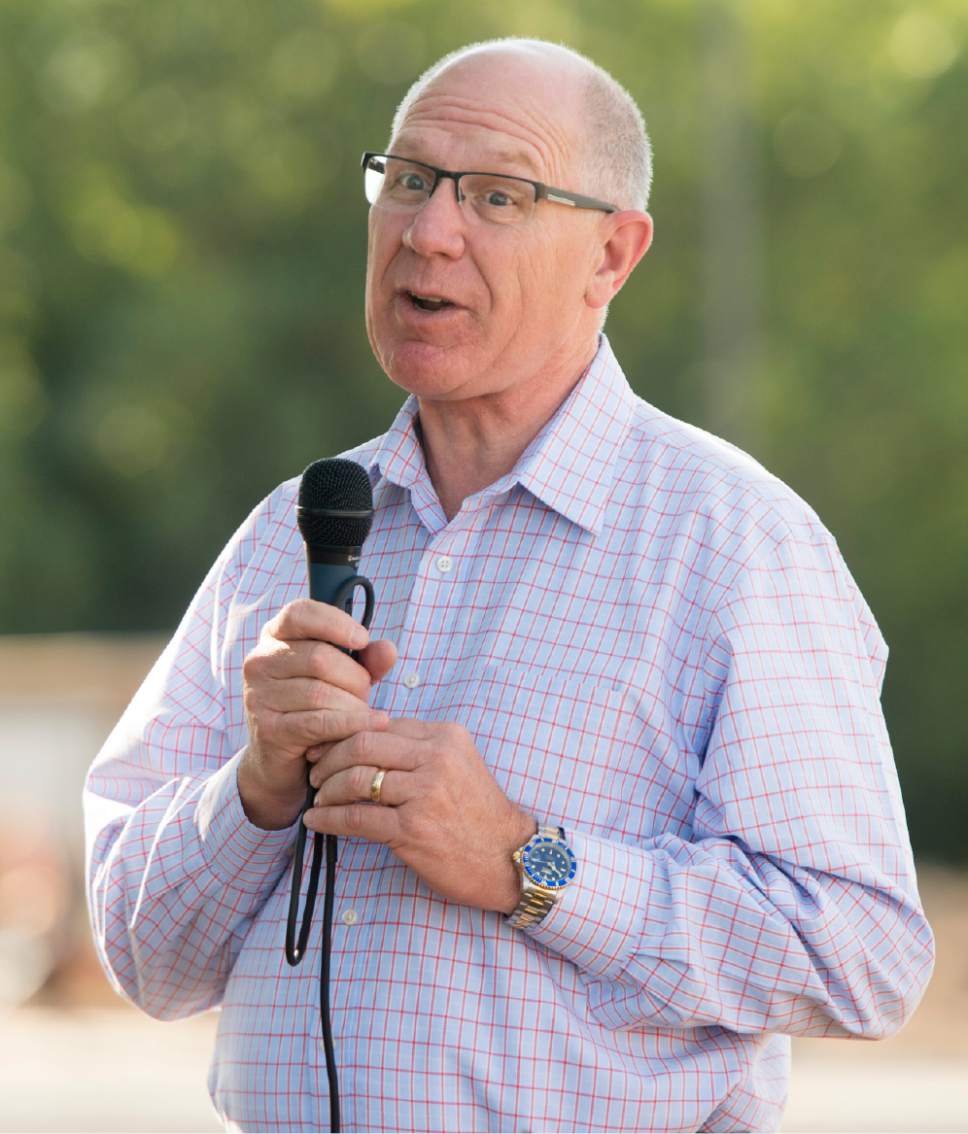This is an archived article that was published on sltrib.com in 2017, and information in the article may be outdated. It is provided only for personal research purposes and may not be reprinted.
Rep. Steve Handy, R-Layton, says he started working on a bill seeking to help pregnant women whose babies are diagnosed with fatal abnormalities. But he says he was chagrined to find that it was about to renew legislative battles over abortion.
"I am going to abandon the bill," he said Tuesday. "I had no intent to weigh into the pro-choice, pro-life debate."
Controversy began earlier this month when Handy made public his HB107, the "perinatal hospice" bill.
Handy developed the idea for it after reading about comprehensive support and counseling available in some places to mothers and families who choose to continue a pregnancy when the fetus likely will die before birth or within three months after.
"I thought, 'Wouldn't it be a good idea if the state could provide these services?' " he said. "I was really trying to be helpful."
He had read that Indiana passed a bill on the topic last year, which was signed by its Gov. Mike Pence, the current vice president-elect. He said he told legislative staffers about that, and they used the Indiana bill as a model for HB107.
When Handy's bill was made public on the Legislature's website, some provisions quickly raised red flags with pro-abortion rights groups.
That included a requirement that women in that situation be given a state-produced brochure that "presents perinatal hospice as the state's preferred alternative to abortion of an unborn child diagnosed with a fetal abnormality."
Marina Lowe, legislative counsel for the American Civil Liberties Union of Utah, said that goes too far.
"I think it's totally inappropriate for the state to be telling patients that," especially after they "most likely at this point have consulted with multiple doctors, genetic counselors and perhaps even religious figures in their lives and come to a decision."
She added that if women choose to seek perinatal hospice services, "that's probably very useful and helpful in a traumatic time. But for the state to be telling an individual that choice is preferable to another is where it steps over and becomes inappropriate."
Lowe said she also worries about new definitions in the bill about fetal anomalies. "That gives me pause about what that may mean for other parts of the code that may make use of that definition" for rules regarding abortion.
She said the ACLU and other groups also have seen similar legislation being introduced in other states, and wondered if some interest group was pushing it.
Handy said the idea for the bill was his own.
"No one approached me about it," he said. "I am not interested in being co-opted by the pro-life, anti-abortion group."
He said he changed his mind about the bill after talking to the Utah Medical Association and others.
"What I have found out now, and in talking with the Utah Medical Association, is that physicians are already doing this," and providing perinatal hospice in Utah. "In these rare situations, they know the resources and they provide them."
So Handy sees no need for a government mandate to spread information about such services, or for the government to help provide them.
"I have come to the conclusion that this bill isn't the proper role of government, that it isn't a necessary bill," he said.



